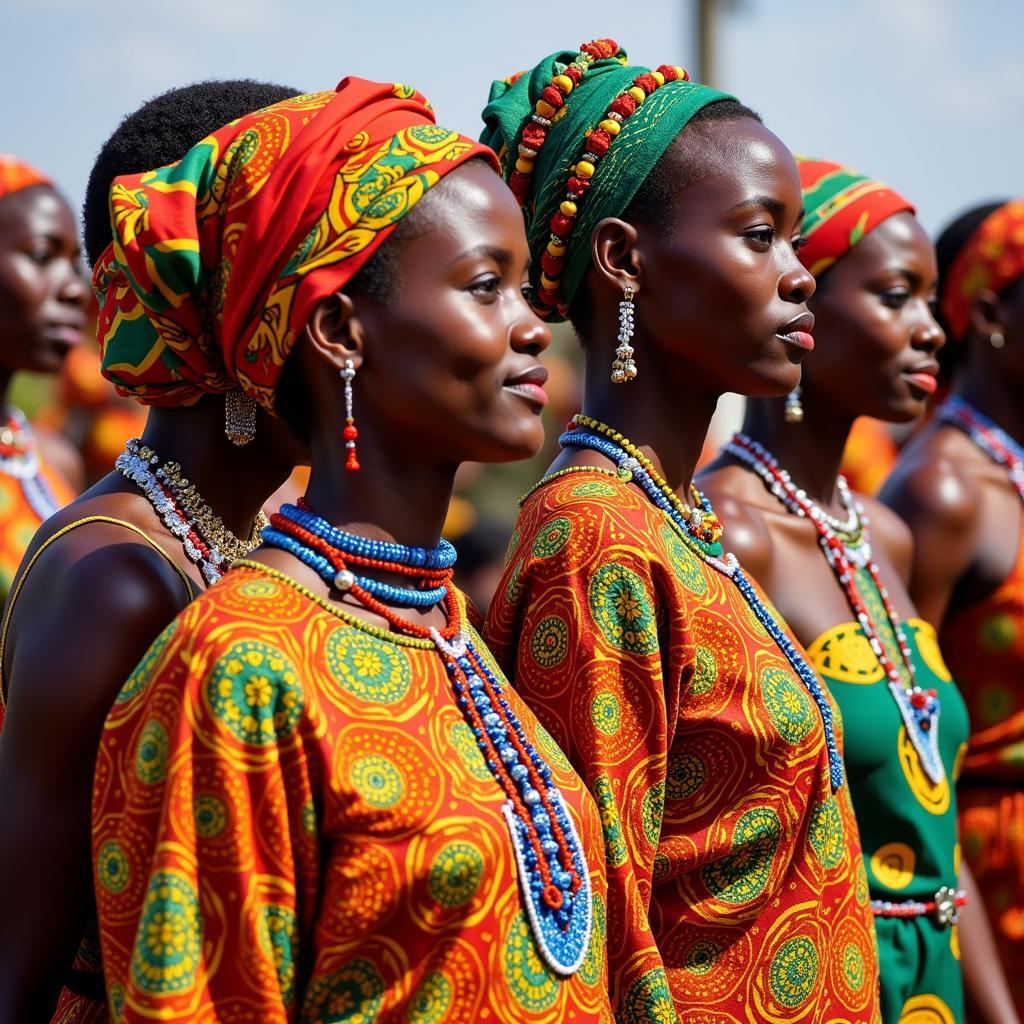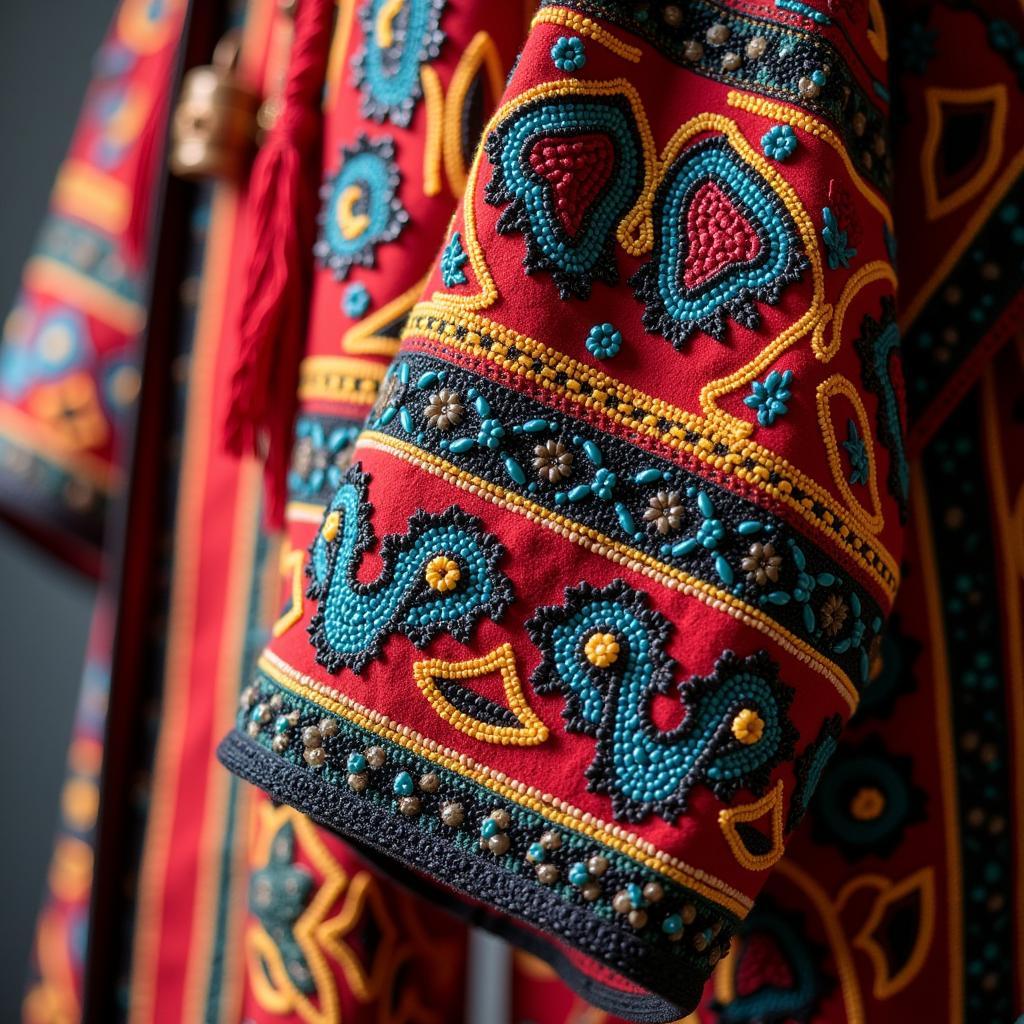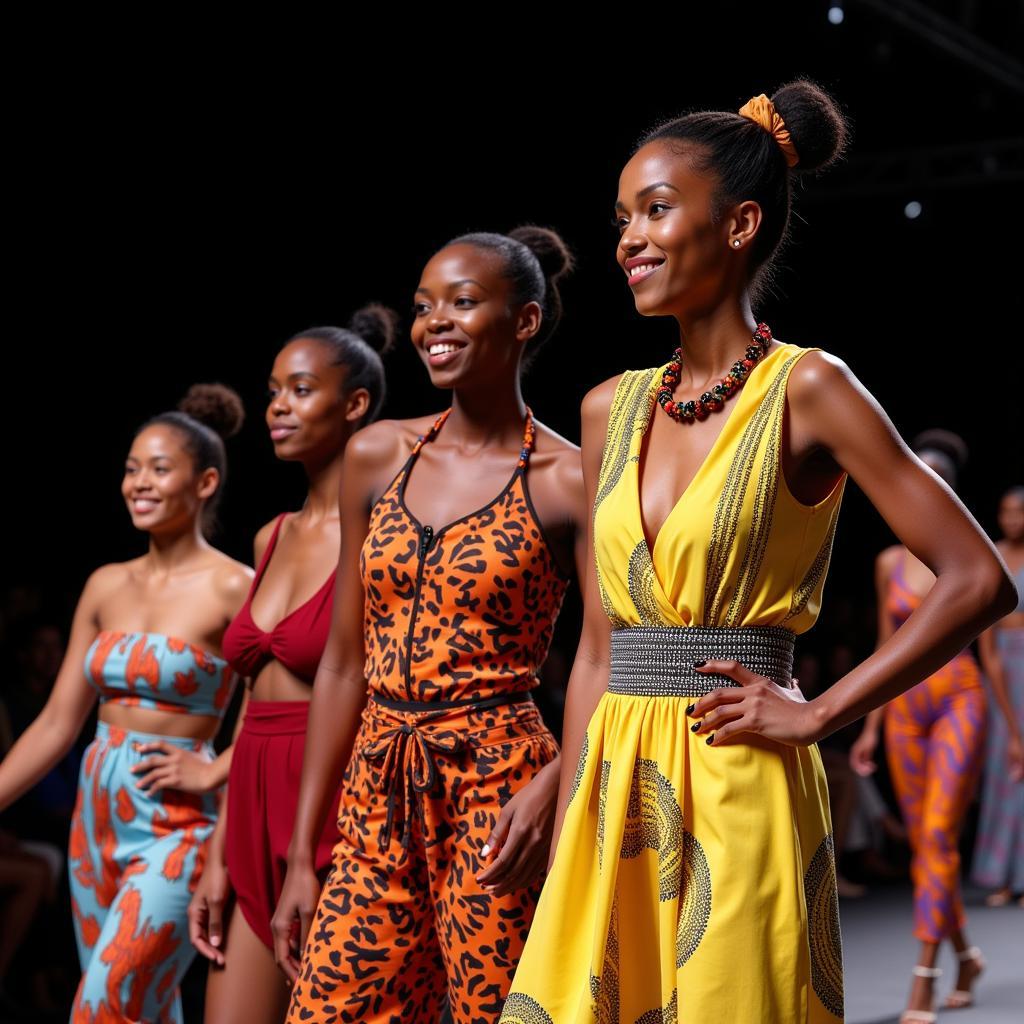African Dress Code is a vibrant tapestry woven from a rich history, diverse cultures, and a deep connection to the land. From the flowing robes of the Sahara to the intricate beadwork of the Maasai, clothing in Africa is not just about covering the body; it’s a powerful form of expression, storytelling, and social commentary.
 Traditional African Clothing Styles
Traditional African Clothing Styles
The Language of Clothing in Africa
Throughout the continent, different colors, fabrics, and patterns hold specific meanings and symbolism. In many cultures, clothing signifies age, marital status, social standing, and even religious beliefs. For instance, the iconic red ochre garments of the Himba people in Namibia represent their connection to their ancestors and the earth. Similarly, the elaborate headdresses worn by Yoruba women in Nigeria convey messages about their lineage, status, and even their mood.
Understanding the cultural significance of African dress code requires delving into the stories behind the garments. african hair styles natural often complement the attire, adding another layer of expression to the overall look.
From Everyday Wear to Ceremonial Garb
African dress code encompasses a wide spectrum of styles, from everyday wear to elaborate ceremonial garments. While Western clothing has become increasingly common in urban areas, traditional attire continues to hold a significant place in African society.
 African Ceremonial Clothing
African Ceremonial Clothing
Special occasions such as weddings, funerals, and festivals call for specific attire that reflects the importance of the event. For example, the “kente” cloth, handwoven in Ghana, is often reserved for significant celebrations and is characterized by its vibrant colors and geometric patterns. Similarly, the “boubou,” a flowing robe worn in many West African countries, is a versatile garment that can be dressed up or down, depending on the occasion.
The Modern Evolution of African Dress Code
Today, African fashion is experiencing a renaissance, with designers drawing inspiration from their cultural heritage and reimagining traditional styles for a contemporary audience. From global runways to local markets, African prints, fabrics, and designs are gaining international recognition for their vibrancy, creativity, and unique aesthetic.
Modern interpretations of African dress code often incorporate elements of Western fashion, creating a fusion of styles that reflects the globalized world we live in. african american music culture, with its rich history and diverse genres, has also influenced contemporary fashion trends.
FAQs about African Dress Code
What is the most common fabric used in African clothing?
Cotton is widely used due to its breathability and versatility. Other popular fabrics include silk, linen, and raffia.
What is the significance of headwraps in African culture?
Headwraps hold deep cultural and symbolic meaning, often signifying age, marital status, or social standing. They are also a beautiful way to express personal style.
Where can I learn more about specific African dress traditions?
Museums, cultural centers, and online resources offer a wealth of information on the diverse clothing traditions found across the African continent.
Is it appropriate for non-Africans to wear African clothing?
It’s important to approach cultural appropriation with sensitivity and respect. Wearing African clothing should be done with an understanding and appreciation for its cultural significance.
Exploring the Rich Tapestry of African Dress
African dress code is a testament to the continent’s rich cultural heritage and creative spirit. From the bold colors to the intricate designs, each garment tells a story and offers a glimpse into the heart of Africa’s diverse cultures.
 African Fashion Show
African Fashion Show
Need help navigating the world of African dress and culture? Contact us at +255768904061, [email protected] or visit us at Mbarali DC Mawindi, Kangaga, Tanzania. Our team is available 24/7 to assist you.
Leave a Reply